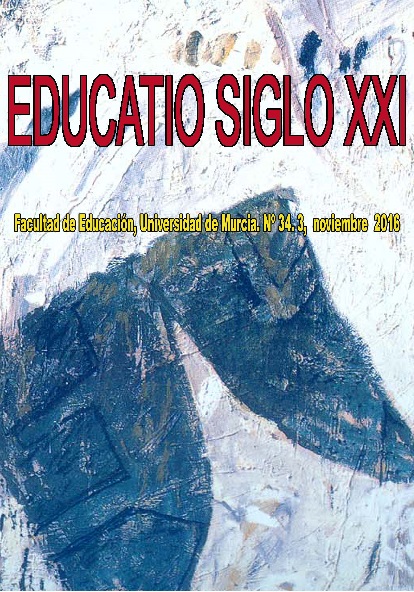Analysis and evaluation of the inclusive model in infant and primary centre support systems
Abstract
The functioning and organization of support
systems in Infant and Primary Education
Centres in the Valencian Community
are studied in this study. Specifically, this
research looks at the question of to what
degree these centres contribute to the
provision of an inclusive system which is
accessible for everyone. Twenty-four professionals
from four different centres, all
of which use different schooling methods,
participated in this study. To collect the
data, qualitative methods, such as interviews,
observation and analysis of documents,
were used. According to the data
obtained, the support systems are not
comprehensively tailored towards inclusivity.
The study carried out showed that certain
elements of organization of inclusivity
are present. However, there are other elements
that remain far from the standards
of inclusivity required in modern schooling,
among which we can find the type of
student who receives educational support;
the place in which this support is given
and the way in which the students are
grouped together. In conclusion, in spite
of obvious advances in the support model
for inclusivity, there is still an extremely
traditional concept of this support focused
principally on the students.
Downloads
-
Abstract1776
-
PDF (Español (España))1132
Original work publishes in this journal is subject to the following terms:
1. Murcia University Press (the publishing house) holds the copyright of the publishes work, and favours and allows their reutilization under the use license stated in point 2.
© Servicio de Publicaciones, Universidad de Murcia, 2015
2. Work is published in the electronic edition under a license (Creative Commons Reconocimiento-NoComercial-SinObraDerivada 4.0 España (legal text). They can be copied, used, disseminated, transmitted and publicly presented, as long as: i) authorship and original publication source is acknowledged (journal, publishing house and URL of the work); ii) are not used for commercial purposes; iii) the existence and specifications of this use license is stated.
3. Conditions for self-archive. Authors are allowed and encouraged to disseminate electronically the pre-pint (before review) and/or post-print (accepted for publication) versions of their work before their publication since that favours earlier circulation and dissemination resulting in an increased chance for the authors to be cited and for the work to reach a bigger share of the academic community. Colour: RoMEO: green.








